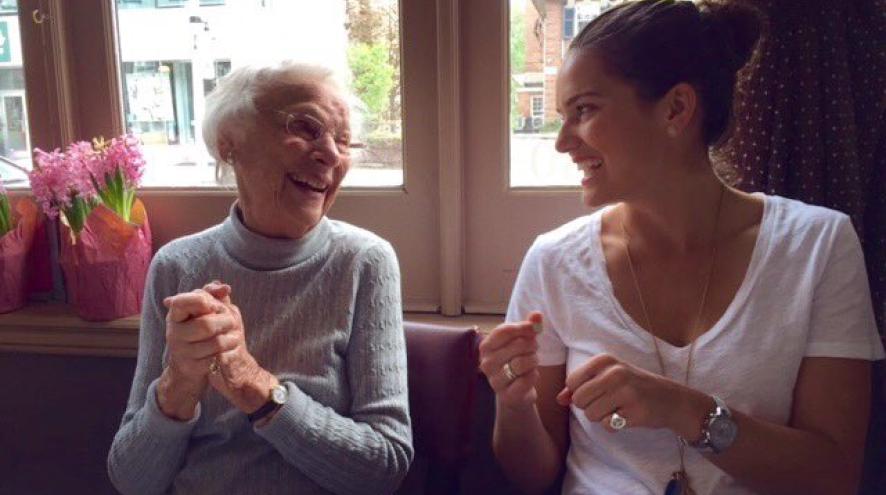Caroline's Story
I’m Caroline Cameron – host of Scotiabank Wednesday Night Hockey on Sportsnet. For Alzheimer’s Awareness Month, I’ve partnered with the Alzheimer Society to help spread awareness of a very personal cause – brain health and dementia.

A decade ago, my now late Grandma Shirley was diagnosed with vascular dementia. We were very close, and her diagnosis was a difficult for all of us.
Suddenly my family and I became a part of my grandma’s life in a way we hadn’t been before. It was challenging for her and for us, adjusting to a new reality, but I quickly learned how helping with little things like laundry or just keeping her company was the best way to support her new normal.
Shortly after, I moved to Vancouver for work. As a way to stay connected to her, I decided to volunteer in seniors’ homes, on dementia and Alzheimer's floors. It was such a rewarding and educational experience; meeting different people, hearing their incredible stories and making connections that matter.
Those experiences taught me so much about patience, empathy and how to best support someone in need. Social isolation can increase the risk of dementia by up to 60 percent.* Any support is important.
As I get older, brain health is something I continue to give more thought to, not just because of my late grandma’s experience with dementia, or because of my career in sports, but because I really believe in the value of a healthy brain for my health today, and in the future.
When you move your body, it boosts your mind. Whether it's going for a walk, a bike ride, or working out at the gym, these movements keep your blood pumping and your mind sharp and focused.
To make sure your brain has the fuel it needs to be in tip-top shape, it’s so important to eat well. Too much sodium in highly processed foods can lead to high blood pressure, increasing the risk of dementia by 60 percent.**
Keeping a healthy brain is all about doing the little things, every day. From wearing a helmet when you ski, to finding a quiet place to destress when you are overstimulated, each practice does its part, and will make a big difference over time.
If you’d like to learn more, there are plenty of brain-healthy tips here:
MORE TIPS
My late Grandma Shirley’s diagnosis of vascular dementia taught me a lot, including the importance of recognizing subtle changes and advocating for yourself and your loved ones.
There are signs. Little hints that might seem insignificant at first.
Understanding these signs and noticing them in ourselves or loved ones is where the power lies. It’s about being aware, present, and comfortable enough to speak up.
Early signs of dementia can be as small as forgetting a word or misplacing items, to changes in behaviour. When these signs become a pattern, it’s an indicator that it might be time to have a chat and explore further to ensure an early diagnosis.
To help, here are the Alzheimer Society’s 10 warning signs of dementia:
WARNING SIGNS
Stay aware and stay present, it could make all the difference.
Sincerely,
Caroline Cameron
